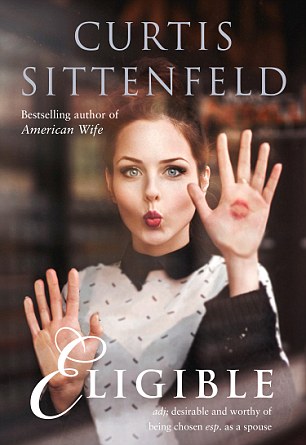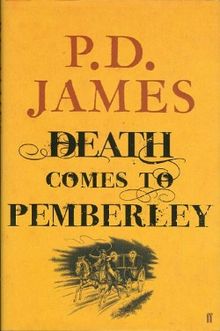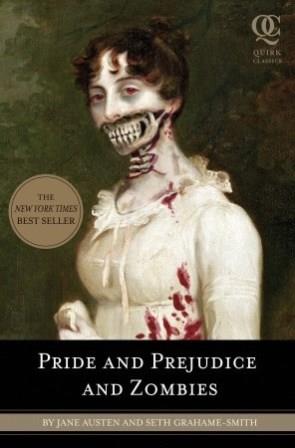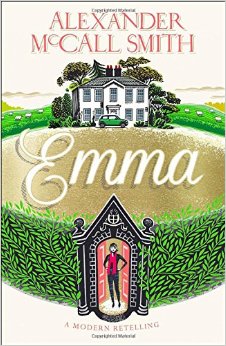
‘Pride and Prejudice’ meets ‘Sex and the City’.
Here’s the short version: if you love P&P, you’ll be fascinated (and possibly outraged) by some of the modern adaptations Sittenfeld has introduced. If you like chick-lit, you’ll likely enjoy this regardless of your knowledge – or lack of knowledge! – of the inspirational text.
What’s it about?
See above! As part of the Austen Project, in which modern authors have been updating Austen’s stories to a modern setting, Curtis Sittenfeld has transplanted much of the plot of Jane Austen’s 18th century tale to 21st century Cincinatti. Darcy and Bingley are doctors, though Darcy is, of course, an actual neurosurgeon, while the lesser catch, Bingley, is best known for his appearance on ‘Eligible’, a modern dating show similar to The Bachelor, leading to this novel’s arch opening line: ‘Well before his arrival in Cincinatti, everyone knew that Chip Bingley was looking for a wife.’
What’s it like?
If I’m honest, I still can’t work out if I liked or loathed much of this book. Liz feels downgraded as a character, working at a trashy women’s magazine, indulging in an affair with one Jasper Wick (who is possessed of a wife and toddler – and yes, Liz is fully aware of the existence of both) and then randomly engaging in so-called ‘hate sex’ with Mr Darcy with literally no discernible reason.
“Plenty of men don’t want children.” Mr. Bennet took a sip of coffee. “I’m still not sure that I do.”
On the other hand, the updating of Mr and Mrs Bennet is perfect. Absolutely spot on. Mr Bennet doesn’t have health insurance, so when he has a health scare he encounters financial difficulties, which he ignores. Mrs Bennet continues to delight in gossip, and enjoys being scandalised by modern attitudes to life. She also has a shopping addiction – presumably to fill the empty void inside created by existing in a loveless marriage and being surrounded by ungrateful, unmarried adult children!
“A woman in her forties can give birth,” Mrs Bennet said, “but it isn’t as easy as the media would have you believe. Phyllis and Bob’s daughter had all sorts of procedures, and what did she end up with but little Ying from Shanghai.”
Mrs Bennet’s cringe-inducing attitudes and dialogue are exactly what I would expect from an updating of her character, as is yoga teacher Jane’s rather zen approach to life and CrossFit enthusiast Lydia’s thoroughly entitled approach.
So it’s good fun?
Hmm, yes, in part. However. A large part of the plot concerns the sale of ‘The Tudor’, the Bennet families old, grand and, er, spider infested manor house and I just didn’t find this very interesting.
More problematically, I disliked Lydia’s storyline, which, as anticipated, revolves around her boyfriend, Ham. Now, logically, P&P readers / enthusiasts would expect Ham to be as dastardly as his namesake, but Sittenfeld takes the story in a completely different direction. I found this uncomfortable purely because I was expecting Ham to be exposed as a villain, so it seemed that his storyline was negative, and that Sittenfeld was suggesting he had wronged some of the other characters by not being as explicit as he could be about his past, but I think this is probably my own expectations inventing a problem that doesn’t really exist.
Mrs Bennet does feel offended by Ham’s actions at one point, but I think we can all agree that neither Austen nor Sittenfeld intend Mrs Bennet to be our moral compass. In fact, if Mrs Bennet is upset, I think we can probably all agree that we’re meant to roll our eyes at her, rather than embrace her distress. Then, just in case we still have doubts, we are treated to Liz essentially educating us on the appropriate tone to take with Ham and people in a similar situation. So, fine, Sittenfeld hasn’t set out to offend modern sensibilities, but I still find Ham and Lydia’s storyline an odd adaptation of Lydia and Wickham’s.
Of course, a modern retelling cannot remain fully on script without becoming ridiculous in its new context, so while Austen’s countryside Jane is considered an unsuitable match for the eligible Bingley due to her social class and her family’s (hilariously inappropriate) behaviour, Sittenfeld’s Jane actually does end up in a rather awkward predicament of her own making, but it can only get more awkward when Bingley decides to appear in ‘Eligible: Fan Favourites’ Reunion’…
Final thoughts
I’m still undecided about this. It’s funny in places, slightly dull in others, and seems to channel the spirit of P&P perfectly through much of the characterisation while seeming damaged by the social mores of it’s predecessor in the plot. (How realistic can it be that so many couples move in / marry so swiftly in the modern text? I appreciate that they live in different states, but maybe more than one date would be a good idea before quitting your job and moving state, Charlotte Lucas?)
Interestingly, the final word here is left to Mary, the scholar, who concludes that, ‘Her sisters…could have their crushes and their courtships, their histrionics and reconciliations’, without her needing to be involved at all. They aren’t bad people; she has better ways to spend her time. Maybe in the end that’s how I feel. Sittenfeld has updated Austen to include contemporary issues and attitudes, but I can continue to enjoy and reread Austen’s original whenever I like. ‘Eligible’ is not a bad book, but it’s not really for me, and that’s fine.
‘Eligible’,
Curtis Sittenfeld,
2017, Borough Press, paperback
My reviews of the other books published under The Austen Project can be found here:
‘Sense and Sensibility’ by Joanna Trollope


